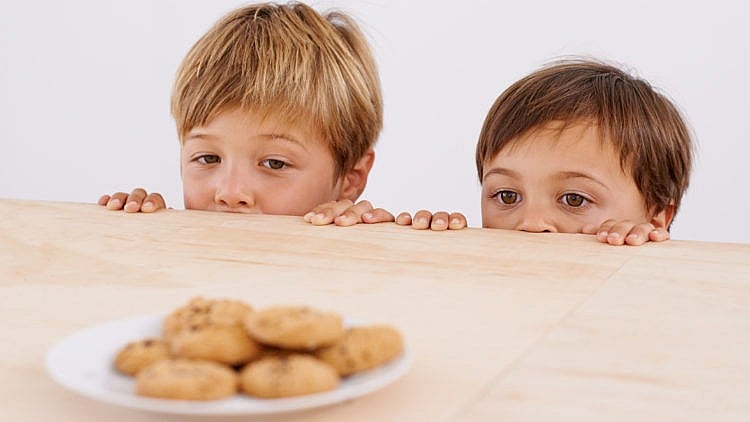A quick roundup of the latest research that matters to parents.
An unavoidable quirk of modern parenting is the nonstop stream of research and “findings” that make their way into our parent group chats and news feeds. That’s why Today’s Parent is compiling monthly roundups of the studies we think are worthy of your limited—and therefore precious—attention.
This s*** is bananas: Do you already feel pressured into giving your overripe bananas a second life as banana bread? Now scientists say, the peel has delicious potential, too. More than just a prop for some old-timey slapstick, banana peels ground into flour and added to, say, sugar cookie dough, results in a cookie that’s “rich in fiber, magnesium, potassium and antioxidant compounds” and (supposedly) just as tasty as cookies made with wheat flour. (ACS Food Science & Technology)
Toxic waste… of time: Here’s a fun one: If you were put off by the threat of toxic heavy metals in store-bought baby food, guess what? Those purees you spent hours preparing, dispensing into ice cube trays for freezing, and then thawing—all so your little angel could spit them back in your face—have just as many heavy metals as the commercially produced kind. (Healthy Babies, Bright Futures)
Speaking of eating metal: U.S. emergency rooms reported a rise in cases in which a child swallowed a lithium “button” battery, the small coin-shaped batteries found in slim electronics such as key fobs, small electronic toys, watches and even singing greeting cards. The report cited more than 70,000 battery-related incidents from 2010 to 2019—nearly twice the amount in the previous decade. And 85 percent of these involved button batteries, which are as much of a chemical hazard as they are a choking one. (Pediatrics)
Don’t cry, baby: Well, we might not have a known cause for colic, or a real meaningful definition of what it even is, but the harried parents of colicky babies now get one piece of scientific insight: a study following colicky babies into childhood suggests infants with colic may be more prone to developing behavioural problems. These kids ranked significantly higher on the “emotionally reactive, anxious/depressed, internalizing problems and total problems scale”. (Journal of Paediatrics and Child Health)

 PARENTING TIPS
PARENTING TIPS PREGNANCY
PREGNANCY BABY CARE
BABY CARE TODDLERS
TODDLERS TEENS
TEENS HEALTH CARE
HEALTH CARE ACTIVITIES & CRAFTS
ACTIVITIES & CRAFTS


